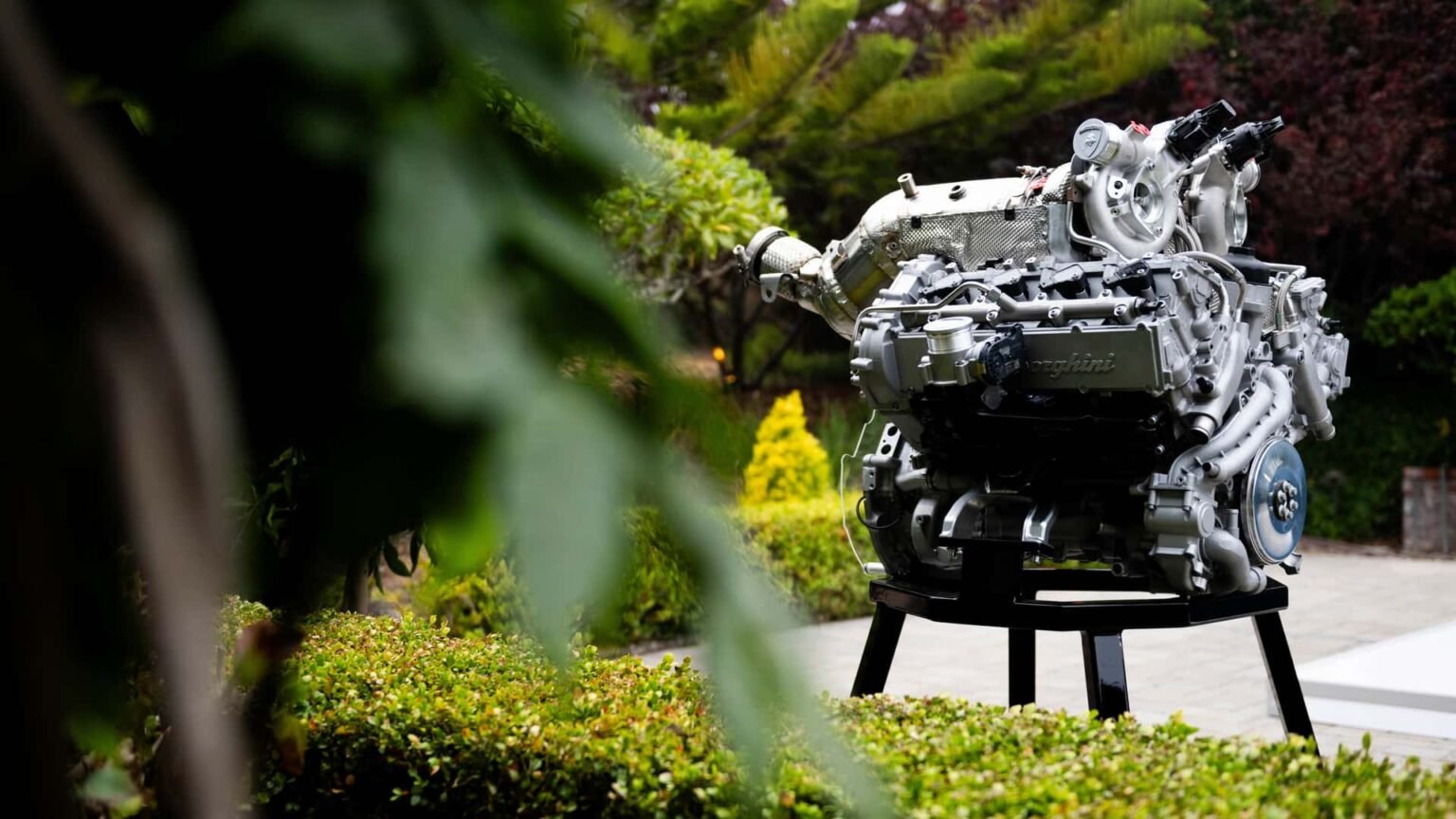It’s abundantly clear to Lamborghini that removing the internal combustion engine from the equation will hinder demand. The company has already delayed the launch of its first EV and recently disclosed plans to keep combustion engines for “as long as possible.” But ICE doesn’t necessarily have to run on gasoline. For instance, the new twin-turbo 4.0-liter V8 can feed on synthetic fuel without compromises.
In an interview with Australian magazine CarExpert, Lamborghini’s Chief Technical Officer argued that synthetic fuel “could be the savior of the combustion engine.” Rouven Mohr added that the Temerario’s new engine can “deliver optimal efficiency and performance with both solutions [gas and e-fuel].” He also touched on the emotional aspect, claiming that EVs still can’t match the excitement of an ICE car.
Lamborghini Temerario’s V-8
Photo by: Lamborghini
“If you ask me the emotion side at the moment, like I said before, I don’t see the [electric] solution that is convincing now. Its time will come, trust me, because this kind of technology transformation needs longer.” But even when enthusiasts warm up to the idea of hot EVs, Mohr believes there will come a time when tomorrow’s youngsters will realize that “okay, the old combustion thing is cool.”
Lamborghini is pinning its hopes on synthetic fuel to extend the life of ICEs beyond 2035, when the European Union will ban sales of new cars that produce harmful emissions. The ruling doesn’t explicitly outlaw combustion engines, as it leaves room for e-fuels, provided they’re carbon neutral.
Synthetic fuels have yet to catch on, and even if they do in the coming years, they’ll remain expensive until production scales up. That, however, isn’t likely to deter Lamborghini buyers. The exotic Italian marque, headquartered in Sant’Agata Bolognese, is part of the Volkswagen Group, which also includes Porsche. That’s relevant because Porsche has been producing e-fuel in Chile since late 2022, when it filled a 911 with synthetic fuel made from water and carbon dioxide using wind energy.
Porsche fills up 911 with synthetic fuel
Porsche claims its electric fuel is “produced from hydrogen obtained purely from renewable energy and CO₂ (carbon dioxide).” It’s being manufactured at an industrial scale in partnership with Chilean operator Highly Innovative Fuels (HIF) to make “combustion engines as near to net carbon neutral as possible.”
While a 911 costs less than half the price of a Temerario, it still starts at $129,950 in base Carrera form. Porsche buyers likely won’t mind paying extra for synthetic fuel if it means keeping their combustion engines running. Porsche has vowed that the last car it makes with a combustion engine will be the 911, and that a fully electric version won’t arrive this decade. However, a hybrid is already here.
Beyond Lamborghini and Porsche, Bentley and Bugatti are also pursuing e-fuels. Outside the Volkswagen Group, Ferrari has also shown interest in synthetic fuel. In the mainstream segment, Toyota, Mazda, and Subaru are collaborating to explore whether ICEs can survive without relying on fossil fuels. Toyota has even gone a step further, experimenting with hydrogen combustion engines.
Let’s be real. Making e-fuels viable for widespread adoption won’t happen overnight, if it happens at all. Large-scale production and distribution will take years and require collective industry effort. With most automakers fully committed to global EV adoption, we’re skeptical about whether enough financial resources remain to push synthetic fuels forward. Perhaps they’ll become a niche for high-end buyers willing to pay the price, but the majority will have to look elsewhere.
Read the full article here


